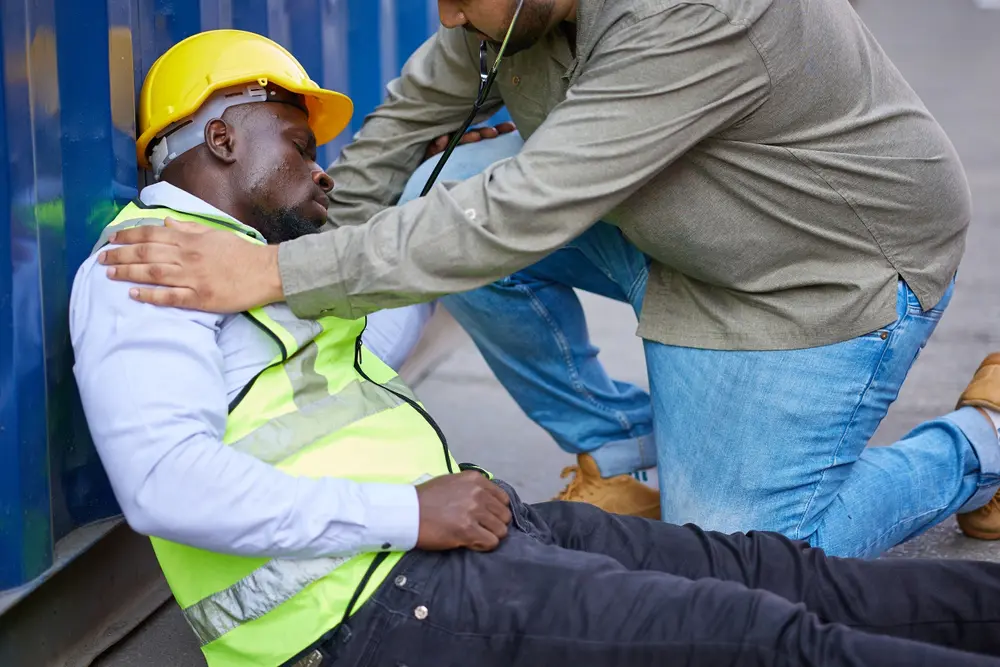Heart attacks are a critical medical emergency requiring immediate and effective response. Knowing what to do when someone is experiencing a heart attack could potentially save a life. This comprehensive guide provides seven crucial steps to take, equipping you with the knowledge needed to act swiftly and efficiently. By understanding these actions, you can help ensure the best possible outcome during such a critical situation.
1. Call Emergency Services Immediately
As soon as you suspect someone is having a heart attack, call emergency services. Do not wait to see if the symptoms subside. Provide clear and precise information to the dispatcher, including the location and condition of the person. Quick response from medical professionals significantly increases the chances of survival and recovery.
Recognizing the Symptoms
- Chest pain or discomfort that lasts more than a few minutes or goes away and comes back
- Pain or discomfort in the jaw, neck, back, arm, or shoulder
- Shortness of breath
- Nausea, lightheadedness, or cold sweats
2. Keep the Person Calm
Help the person to sit down in a comfortable position and try to keep them calm. Avoid moving them unnecessarily. Stress can exacerbate the heart attack, increasing the damage to the heart muscle. Speaking in a calm, reassuring tone can help stabilize their emotional state.
3. Loosen Any Tight Clothing
Ensure that the person’s clothing is loose, particularly around the neck and chest. This can help improve breathing and circulation, reducing the strain on the heart. Removing tight belts, constrictive clothing, and ensuring the environment is airy and free from smoke or pollutants is crucial.
4. If Appropriate, Administer Aspirin
If the person is conscious and not allergic to aspirin, and if you are sure they are not at risk for bleeding or that they are not taking other medication that may interact negatively with aspirin, give them an aspirin tablet to chew slowly. Aspirin can help thin the blood, potentially reducing the severity of the heart attack.
5. Monitor Vital Signs
If you are trained in first aid, monitor the person’s vital signs—pulse, breathing rate, and responsiveness. This information can be invaluable to emergency responders upon their arrival. If the person loses consciousness and you are trained in CPR, prepare to administer it if necessary.
6. Prepare for CPR if Necessary
If the person becomes unconscious and is not breathing, start CPR if you are trained. Push hard and fast on the center of the chest, allowing for full recoil between compressions. If another bystander is available, have them help or take turns if you become fatigued.
7. Stay with the Person Until Help Arrives
Do not leave the person alone except to call for help. Continue to provide reassurance and monitor their condition. If the person is conscious, encourage them to remain still and not to consume any food or drink, as this could complicate their condition.
Responding Effectively to a Heart Attack
Handling a heart attack situation requires calm, decisive actions, as highlighted in the seven essential steps outlined above. Remember, the best chance of survival for anyone experiencing a heart attack comes from prompt medical attention paired with an immediate and effective first response. Being prepared to act with confidence and care can make a critical difference in the outcome of such an emergency.
Every second counts during a heart attack, and knowing what to do can significantly improve the affected person’s chances of recovery. It is vital to maintain a sense of urgency while ensuring that your actions contribute positively to the situation. Educate yourself and others about the signs of a heart attack and how to respond correctly. Familiarize yourself with CPR techniques and consider taking a certified first aid course to better prepare yourself for this and other medical emergencies.
The importance of being prepared cannot be overstated. In a world where medical emergencies can arise at any moment, having the knowledge and skills to respond effectively is invaluable. Stay informed, stay prepared, and remember, your actions could be the difference between life and death. Empower yourself with knowledge and confidence, and you could save a life.
This story was created using AI technology.
















